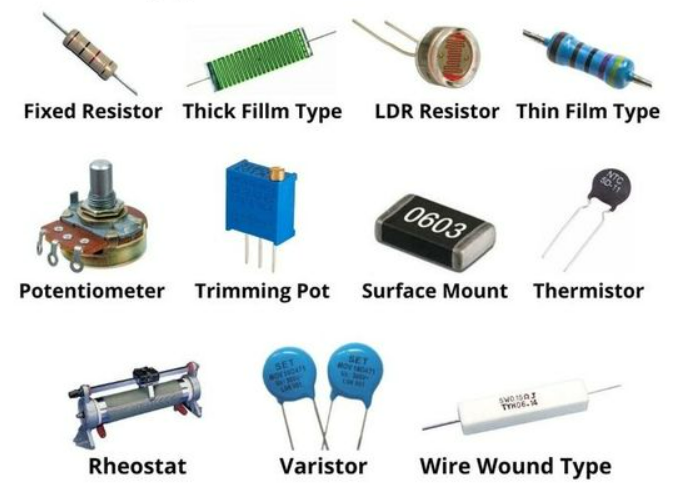Understanding Resistor Types: A Fundamental Guide
Resistors are essential components in electronics, controlling the flow of current within circuits. They come in various types, each suited for specific applications based on their construction, resistance tolerance, and power rating. Here’s a brief overview of the most common types:
- Carbon Composition Resistors: These resistors are made from a mixture of carbon powder and a binding material. They are inexpensive and used in general-purpose applications, but their tolerance is relatively low, making them less precise.
- Carbon Film Resistors: These resistors are made by depositing a thin layer of carbon on an insulating substrate. They offer better precision and stability than carbon composition resistors and are used in applications where accuracy is essential.
- Metal Film Resistors: These are similar to carbon film resistors but use a metal layer instead of carbon. They provide high accuracy, low noise, and excellent temperature stability, making them ideal for precision circuits.
- Wirewound Resistors: Constructed by winding a metal wire around a core, these resistors are known for their high power handling capability and low inductance. They are commonly used in high-power applications.
- Surface Mount Resistors (SMD): These resistors are designed for modern electronics, where space is limited. They are small, efficient, and easily mounted on printed circuit boards (PCBs).
- Variable Resistors (Potentiometers): These resistors allow the resistance to be adjusted manually, making them perfect for applications like volume controls or tuning circuits.
Understanding these resistor types helps in selecting the right one for your specific application, ensuring optimal performance in your electronic projects.


